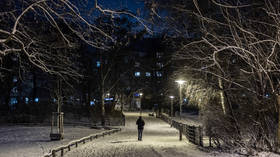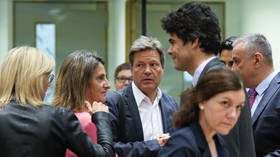EU gas rationing plan won't suceeed – The Economist

The EU’s gas rationing plan approved on Tuesday may not stand the test of a cold winter, Britain's The Economist magazine warned on Wednesday.
A “meagre” cut to gas consumption will not solve the continent’s problems, the publication wrote, referring to the plan that will see most EU nations voluntarily reduce their use of natural gas by 15% between August 1 and March 31 next year.
The deal was struck as fears grow over a possible halt of Russian gas supplies. At the moment the Nord Stream 1 pipeline, a key artery that carries natural gas from Russia to Germany, is operating at 20% capacity. Russian energy giant Gazprom cites technical issues with turbines as the reason for the reduced flow. However, the EU believes that Moscow is using gas to exert political pressure on the bloc. An alternative route via Ukraine has been restricted by Kiev.
The main reason for the rationing is to “ensure that a shortfall of Russian gas does not leave homes unheated or factories shuttered”, The Economist writes, but according to the publication, its success largely depends on the weather.
“If the coming winter is mild, the EU may scrape by. But if it is cold the bloc will have to prove that it can hold together when times are hard. Germany in particular will need to show solidarity with other member countries. It sits at the center of Europe’s network of gas pipelines. Will it, for instance, allow gas to flow to the Czech Republic to keep people from freezing there if that means its factories have to go on furlough?” the publication writes, adding that at the start of the coronavirus pandemic in 2020 some European countries, including Germany, imposed bans on exports of protective gear to avoid shortages at home.
The plan has several other weaknesses, The Economist notes, such as different levels of exposure to Russian gas among the nations.
Before its approval, a number of countries including Italy, Hungary, Poland, Portugal and Spain voiced their concerns, saying that they had already cut consumption, citing a lack of connection to Europe’s gas pipeline network and the fact that decisions on energy are usually a national issue, Bloomberg wrote earlier. The approved plan came with some exemptions, with Spain and Portugal reportedly allowed to use just 7% less gas. Other concessions were made too but proved not enough to get the plan unanimous approval, with Hungary voting against it.
For more stories on economy & finance visit RT's business section













